“I couldn't ask for a better attorney, and office to work with.”-Satisfied Client
Recent Blog Posts
DWI With Multiple Child Passengers Part 5
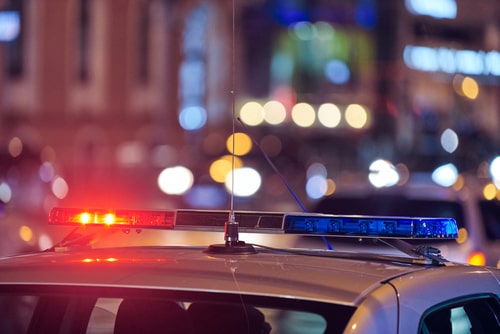 Getting arrested does not mean that you will definitely get convicted. You have rights when you have been charged with a crime. You have rights when a police officer pulls you over and while you are in custody. Although getting charged with a felony DWI for carrying multiple child passengers puts you in a precarious legal position, an experienced Houston, TX DWI defense lawyer might find that you have a strong legal defense available.
Getting arrested does not mean that you will definitely get convicted. You have rights when you have been charged with a crime. You have rights when a police officer pulls you over and while you are in custody. Although getting charged with a felony DWI for carrying multiple child passengers puts you in a precarious legal position, an experienced Houston, TX DWI defense lawyer might find that you have a strong legal defense available.
Defending DWI With Child Passenger Charges
Fortunately, you and your retained DWI defense attorney have much you can and should do to fight felony DWI with child passengers charges. Just because you face a felony DWI charge does not mean that the court will convict you of that charge. When you retain a skilled and experienced DWI lawyer for your defense against a DWI with child passengers charge, your attorney may raise and advocate for multiple affirmative defenses to the charge. Prevailing on any one or more of these defenses could result in the prosecution abandoning or reducing the felony DWI charge, the court dismissing the felony DWI charge, or the prosecution offering an acceptable plea bargain.
DWI With Multiple Child Passengers Part 4
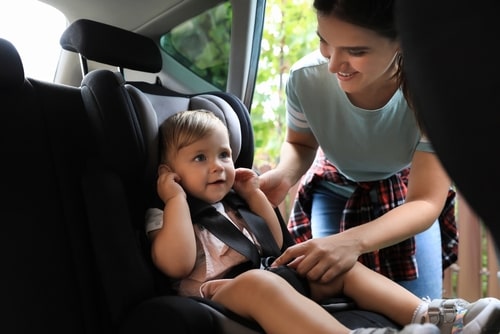 If you have been arrested for a DWI while carrying multiple child passengers, you are in a very serious situation. Not only could you face serious criminal penalties, but if you were driving while intoxicated with your own children in the car, you could also face civil consequences–including having the children removed from your home. Child Protective Services will almost certainly get involved due to mandated reporting laws. The main reason why DWI with a child passenger is automatically a felony charge in Texas is because it is a form of child endangerment, as intoxicated drivers are very likely to get into an accident. Fortunately, there is a lot an experienced Houston, TX felony DWI defense lawyer can do to protect you. Having skilled representation is essential.
If you have been arrested for a DWI while carrying multiple child passengers, you are in a very serious situation. Not only could you face serious criminal penalties, but if you were driving while intoxicated with your own children in the car, you could also face civil consequences–including having the children removed from your home. Child Protective Services will almost certainly get involved due to mandated reporting laws. The main reason why DWI with a child passenger is automatically a felony charge in Texas is because it is a form of child endangerment, as intoxicated drivers are very likely to get into an accident. Fortunately, there is a lot an experienced Houston, TX felony DWI defense lawyer can do to protect you. Having skilled representation is essential.
Child Removal for DWI With Multiple Child Passengers
Removal of the children from the defendant parent's home is an even bigger risk in the case of a DWI charge with multiple child passengers. The felony DWI charge is serious, but the removal of children could be just as serious or more serious as a collateral consequence of the felony charge. Texas's Family Code requires officials who suspect child endangerment or abuse to report the concerns to Child Protective Services. Texas prosecutors construe a DWI charge with child passengers as reportable endangerment under the Family Code.
DWI With Multiple Child Passengers Part 3
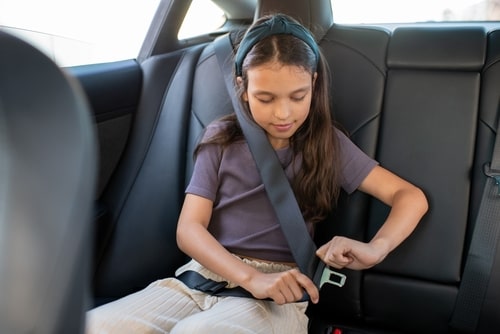 The felony DWI with child passenger charge has the important public policy purpose of protecting child safety. The child need not have suffered any injury to sustain this charge. Serious bodily injury to another due to the intoxicated operation of a motor vehicle in a public place is a separate Texas felony crime called intoxication assault. The policy behind the child passenger DWI crime presumes that the child is at risk of injury or other harm while in a vehicle whose operator is intoxicated. The felony DWI child passenger crime discourages intoxicated drivers from transporting child passengers. Texas's felony DWI child passenger crime is complete with just one child passenger. If you are arrested for DWI while carrying multiple child passengers, you need a Houston, TX felony DWI lawyer to help you. Your situation is serious even if there were no injuries to any of the children.
The felony DWI with child passenger charge has the important public policy purpose of protecting child safety. The child need not have suffered any injury to sustain this charge. Serious bodily injury to another due to the intoxicated operation of a motor vehicle in a public place is a separate Texas felony crime called intoxication assault. The policy behind the child passenger DWI crime presumes that the child is at risk of injury or other harm while in a vehicle whose operator is intoxicated. The felony DWI child passenger crime discourages intoxicated drivers from transporting child passengers. Texas's felony DWI child passenger crime is complete with just one child passenger. If you are arrested for DWI while carrying multiple child passengers, you need a Houston, TX felony DWI lawyer to help you. Your situation is serious even if there were no injuries to any of the children.
DWI With Multiple Child Passengers - Part 2
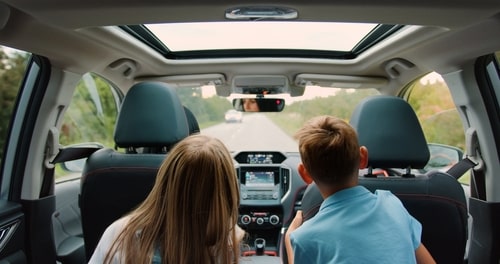 In this blog, we will continue our topic from last week and provide more information on DWI with multiple child passengers. Driving while intoxicated with multiple child passengers is a serious felony in Texas. Often, it is parents who are arrested on this charge. For other vehicle operators at certain times of life, having multiple child passengers in their vehicle is not that unusual, even though they may not be parents of multiple children. If you have been charged with a DWI while carrying child passengers, you must immediately seek the advice of an experienced Houston, TX felony DWI lawyer.
In this blog, we will continue our topic from last week and provide more information on DWI with multiple child passengers. Driving while intoxicated with multiple child passengers is a serious felony in Texas. Often, it is parents who are arrested on this charge. For other vehicle operators at certain times of life, having multiple child passengers in their vehicle is not that unusual, even though they may not be parents of multiple children. If you have been charged with a DWI while carrying child passengers, you must immediately seek the advice of an experienced Houston, TX felony DWI lawyer.
Other Multiple Child Passengers Situations
School bus drivers and drivers of general transportation buses and vans would be obvious examples. But you do not have to be a bus driver to have multiple children in your vehicle. Parents carpool to take children to school and pick up children after school. Grandparents pick up grandchildren and their friends for trips to the pool, playground, or museum. Teachers and coaches take groups of children to school athletic practices and events, while teachers and volunteers take groups of children on field trips and to band, choir, and drama performances. Aunts, uncles, other relatives, and friends take groups of children to plays, ball games, zoos, and all kinds of other social, cultural, and recreational events.
DWI With Multiple Child Passengers - Part 1
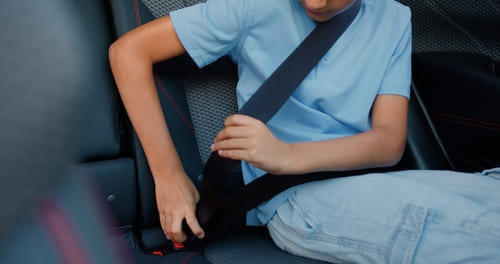 A Texas DWI arrest with multiple child passengers in the vehicle is a very serious matter. When the DWI offense involves a child passenger in the vehicle that the defendant driver was operating when arrested on the DWI, Texas criminal law enhances the typical first-offense DWI charge from a simple Class B misdemeanor all the way to a state jail felony. A Texas DWI with a child passenger is a felony, not a misdemeanor, crime.
A Texas DWI arrest with multiple child passengers in the vehicle is a very serious matter. When the DWI offense involves a child passenger in the vehicle that the defendant driver was operating when arrested on the DWI, Texas criminal law enhances the typical first-offense DWI charge from a simple Class B misdemeanor all the way to a state jail felony. A Texas DWI with a child passenger is a felony, not a misdemeanor, crime.
Felony DWI charges involving child passengers can have other serious collateral consequences. Those collateral consequences can include driver's license administrative suspension and potential effects on professional licenses and employment. But the collateral consequences of a DWI with child passengers can also include potentially affecting child custody.
Why Solicitation is More Serious Than Prostitution
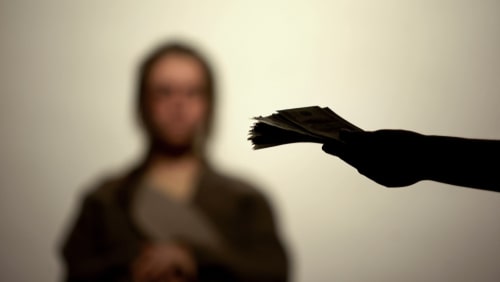 You might be under the impression that working as a prostitute would be a more serious crime than hiring one. While a habitual prostitute makes a career out of crime, a man who hires a prostitute may be a mostly law-abiding citizen who broke the law only once, perhaps during a bachelor party or after a difficult breakup. However, in Texas, the opposite is true. Solicitation, or the crime of paying for sex, is a more serious offense than selling sex. Concerns over human trafficking and the exploitation of vulnerable women are the main reason for this. Courts and legislators are becoming more aware that many women are forced or coerced into prostitution and may be victims themselves. If you have been charged with soliciting a prostitute, you need an experienced Houston, TX criminal defense lawyer.
You might be under the impression that working as a prostitute would be a more serious crime than hiring one. While a habitual prostitute makes a career out of crime, a man who hires a prostitute may be a mostly law-abiding citizen who broke the law only once, perhaps during a bachelor party or after a difficult breakup. However, in Texas, the opposite is true. Solicitation, or the crime of paying for sex, is a more serious offense than selling sex. Concerns over human trafficking and the exploitation of vulnerable women are the main reason for this. Courts and legislators are becoming more aware that many women are forced or coerced into prostitution and may be victims themselves. If you have been charged with soliciting a prostitute, you need an experienced Houston, TX criminal defense lawyer.
DUI v. DWI in Houston
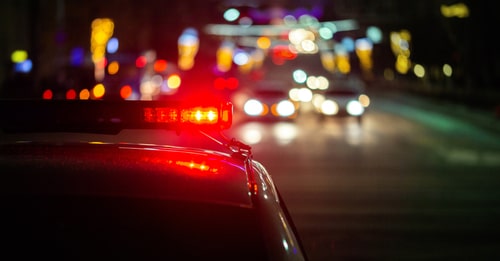 In other states, "Driving Under the Influence" (DUI) refers to an adult's violation of a drunk-driving law but, in Houston, the adult charge is "Driving While Intoxicated" (DWI), as explained above. The Texas "DUI" is a specific charge against a minor for drinking and driving. If you are a minor who has been charged with DUI or an alcohol-related offense, it is important to contact a Houston, TX DUI defense lawyer immediately.
In other states, "Driving Under the Influence" (DUI) refers to an adult's violation of a drunk-driving law but, in Houston, the adult charge is "Driving While Intoxicated" (DWI), as explained above. The Texas "DUI" is a specific charge against a minor for drinking and driving. If you are a minor who has been charged with DUI or an alcohol-related offense, it is important to contact a Houston, TX DUI defense lawyer immediately.
Zero Tolerance for Minors in Houston
Because of the state's zero-tolerance approach, the DUI charge for minor drivers does not require any impairment, intoxication, or BAC. Any alcohol use while driving is subject to a DUI. However, because of this lower standard, the DUI penalties are less severe - a first-offense DUI may result in a fine of up to $500 and 40 hours of community service, while a first-offense DWI fine can be as much as $2,000 with a jail sentence as long as 180 days.
"Zero Tolerance": When Minors Are Deemed Under the Influence in Houston
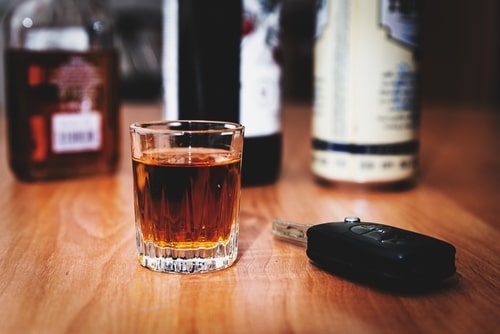 For adults, state alcohol-related law is, at its core, focused on safety: we do not want anyone harmed because of someone's use of alcohol. A person may be charged with "driving while intoxicated" (DWI) if he or she has been driving on a public road and has consumed so much alcohol (or another substance) that the person no longer has the normal use of his or her mental or physical faculties. Intoxication is presumed if a person has a breath or blood concentration (BAC) of 0.08 percent or above. A minor who is charged with underage DWI may face more serious consequences and needs an experienced Houston, TX criminal defense attorney.
For adults, state alcohol-related law is, at its core, focused on safety: we do not want anyone harmed because of someone's use of alcohol. A person may be charged with "driving while intoxicated" (DWI) if he or she has been driving on a public road and has consumed so much alcohol (or another substance) that the person no longer has the normal use of his or her mental or physical faculties. Intoxication is presumed if a person has a breath or blood concentration (BAC) of 0.08 percent or above. A minor who is charged with underage DWI may face more serious consequences and needs an experienced Houston, TX criminal defense attorney.
What is Different About DWI for Minors in Houston?
For minors under the age of 21, Texas lawmakers had a broader prevention goal in mind: they wanted to stop minors from using alcohol in the first place. Therefore, the relevant laws for minors intend to prevent them from using alcohol in the first place. Collectively, these resulting statutes are referred to as Texas's "zero tolerance" laws.
Evading Arrest While DWI in Houston
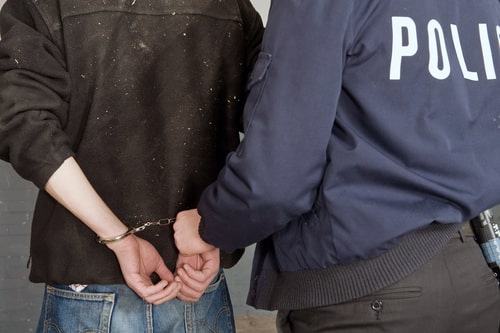 It is extremely common for drivers who are drunk to panic when they realize that a police officer is trying to pull them over, or has noticed that they are drunk. These drivers may make attempts to avoid arrest, which can lead to additional charges for evading arrest. Evading is normally a misdemeanor, but may be charged as a state jail felony if the defendant used a vehicle while fleeing. This is because fleeing in a vehicle can lead to a high-speed police chase, which endangers everyone involved and nearby. Most DWI drivers who flee do so while driving, although some do attempt to flee on foot. If you are accused of DWI and evading arrest, it is very important to seek advice from a qualified Houston, TX DWI defense lawyer immediately.
It is extremely common for drivers who are drunk to panic when they realize that a police officer is trying to pull them over, or has noticed that they are drunk. These drivers may make attempts to avoid arrest, which can lead to additional charges for evading arrest. Evading is normally a misdemeanor, but may be charged as a state jail felony if the defendant used a vehicle while fleeing. This is because fleeing in a vehicle can lead to a high-speed police chase, which endangers everyone involved and nearby. Most DWI drivers who flee do so while driving, although some do attempt to flee on foot. If you are accused of DWI and evading arrest, it is very important to seek advice from a qualified Houston, TX DWI defense lawyer immediately.
Actions That Can Lead to Evading Arrest and Similar Charges
In addition to the DWI, you might face charges for evading arrest, evading detention, or similar charges if you took measures to avoid getting arrested such as:
DWI With a Child Passenger Can Affect Divorce in Houston, TX
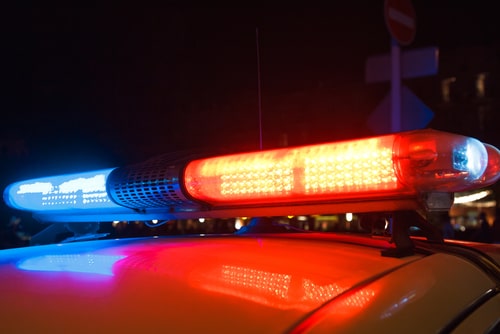 While a simple DWI is normally a misdemeanor, if you had a child under 15 years old in the car, you could instead be charged with a felony. If the child in question was your child, your spouse will likely be quite angry with you for putting your child in harm’s way. This situation sometimes leads to CPS involvement, which can put enormous strain on a marriage. It is unsurprising that many couples get divorced after one of them is charged with DWI while their child is in the car. Facing this serious felony charge can have an enormous impact on your divorce proceedings and the type of child custody arrangement that will be ordered. There is a substantial chance that the family law court will view you as a potential danger to your child. It is important to be represented by a skilled Houston, TX, DWI defense lawyer who can work to mitigate the seriousness of your case.
While a simple DWI is normally a misdemeanor, if you had a child under 15 years old in the car, you could instead be charged with a felony. If the child in question was your child, your spouse will likely be quite angry with you for putting your child in harm’s way. This situation sometimes leads to CPS involvement, which can put enormous strain on a marriage. It is unsurprising that many couples get divorced after one of them is charged with DWI while their child is in the car. Facing this serious felony charge can have an enormous impact on your divorce proceedings and the type of child custody arrangement that will be ordered. There is a substantial chance that the family law court will view you as a potential danger to your child. It is important to be represented by a skilled Houston, TX, DWI defense lawyer who can work to mitigate the seriousness of your case.




 Office Location
Office Location
